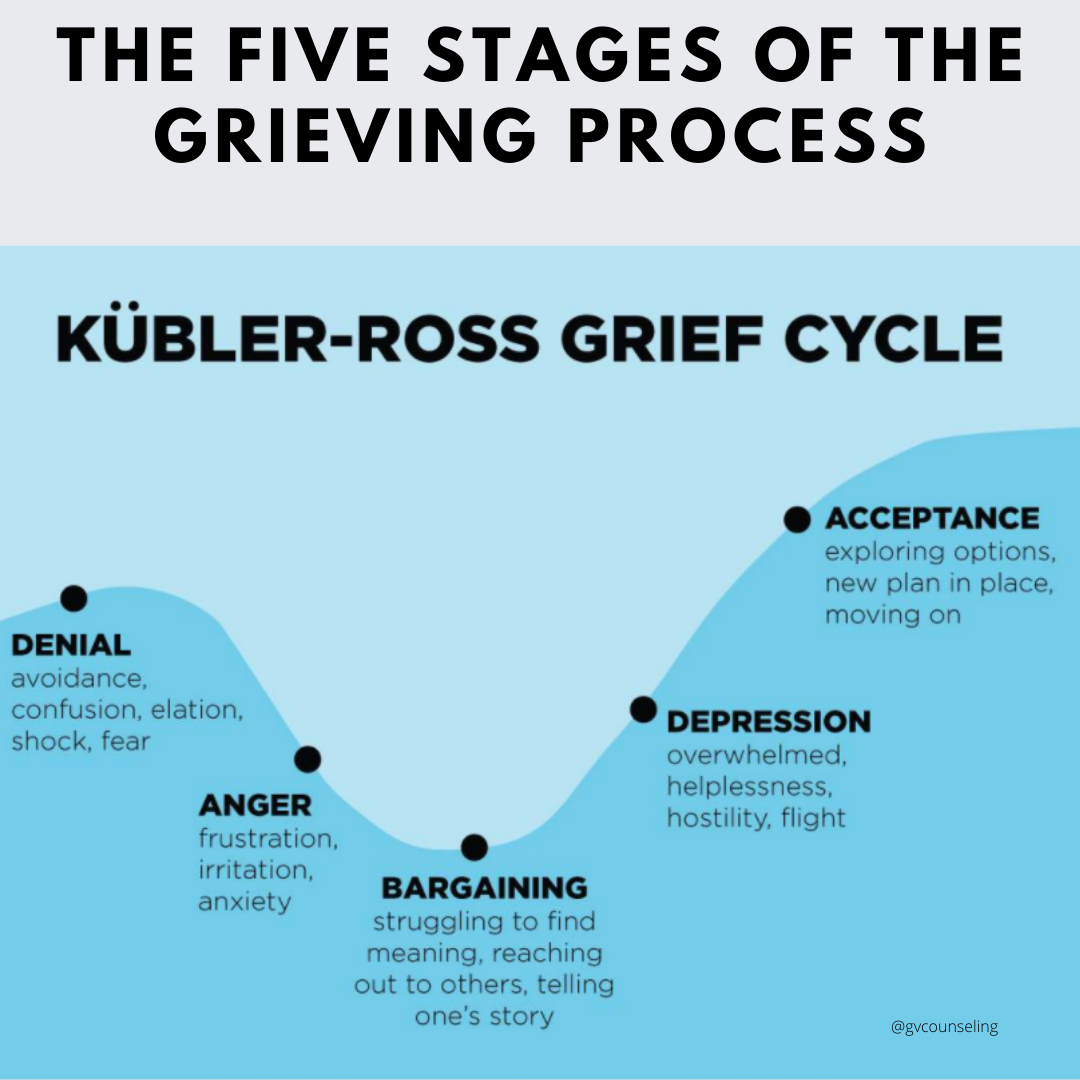Katie Kitamura, an acclaimed novelist and recent Guggenheim Fellow, is set to share her insights during a conversation hosted by the Harvard Mahindra Humanities Center. Her latest work, “Audition,” explores themes of horror in literature, delving into the unsettling dynamics of middle-class life amidst the eerie backdrop of a New York City apartment. In interviews and discussions, including notable “Katie Kitamura interviews,” she reveals her fascination with performance and the uncanny aspects of daily existence, which resonate with readers even in the context of contemporary pandemic themes in novels. As Kitamura’s storytelling unfolds, her ability to expose the hauntings of modern life captivates audiences, challenging them to explore hidden fears and societal truths. Prepare to witness a captivating mix of storytelling and intellectual discourse that encapsulates the essence of our times with a nod to the exploration of fear and privacy in her narratives.
In a world where the normality of life often mingles with the grotesque, Kitamura’s latest narrative invites readers to confront their own perceptions of reality. Drawing on the nuances of everyday existence, her work seamlessly intertwines literature with the uncanny elements of horror, reflecting internal and external struggles faced by individuals. This conversation not only highlights the craftsmanship behind her writing but also situates her work within a broader discourse on how fear manifests in our relationships and environments. As we dissect the themes of her novels, it becomes clear that Kitamura’s exploration of identity and performance resonates deeply, offering a lens to understand the complexities of human interaction during a troubled era. Whether discussing the performance of roles or the quiet terror of familial relationships, her ability to evoke thought and emotion makes her a key figure in contemporary literary circles.
Exploring Horror in Katie Kitamura’s Novels
Katie Kitamura’s exploration of horror in literature marks a significant thematic shift that intrigues both critics and readers alike. With her latest novel, “Audition,” she delves deep into the complexities of middle-aged existence, creating a narrative that resonates with an eerie atmosphere. Building on her fascination with genres, Kitamura draws parallels to classic works such as “Rosemary’s Baby,” infusing elements of psychological tension that amplify the everyday horrors of life. The uncanny experiences of her characters invite readers to confront altered perceptions of reality, where familiar spaces suddenly become unsettling. Through these chilling transformations, Kitamura adeptly navigates the boundaries of horror, illustrating that true fright often stems from the disruptions in our understanding of those we know intimately.
In “Audition,” the protagonist’s internal conflict reflects broader societal anxieties, making it relatable yet chilling. This emotional landscape is saturated with feelings of isolation and estrangement within domestic confines, rather than traditional monsters lurking in the dark. Kitamura crafts an intimate discomfort, asking readers to reconsider the essence of familiarity in their own lives. As the central character grapples with the duality of her family and the looming dread of unforeseen revelations, the narrative elevates the concept of horror beyond its conventional confines, challenging us to question what truly frightens us within our own domestic realms.
Moreover, Kitamura’s representations of domesticity reframe the genre of horror, drawing attention to the psychological traps latent within seemingly safe environments. By positioning her characters, often actors and performers, in claustrophobic settings, she emphasizes the horror of performance in everyday life—a theme that resonates deeply with many readers today. The emphasis on actors grappling with identity and perception highlights the fragility of self-awareness, revealing an undercurrent of fear tied to authenticity and connection. This thread runs through much of her work, indicating that Kitamura is not just experimenting with horror, but is also pushing the boundaries of how we perceive and interpret threats in literature.
Pandemic Themes in Literature: A Conversation with Katie Kitamura
The influence of the pandemic looms large in contemporary literature, and Katie Kitamura’s recent work inadvertently channels these themes of isolation and uncertainty. In her novel “Audition,” while explicit references to masks or vaccines are absent, the backdrop of confinement within a small apartment echoes the collective experiences of many during lockdowns. Kitamura’s keen insight reveals how the lived realities of the pandemic seep into the narratives we create, often without intent. This nuanced reflection showcases how societal pressures and fears manifest in personal lives, drawing a parallel to the confinement and tension experienced at home. As readers, we cannot help but relate to the struggles of her characters—facing the claustrophobia of relationships exacerbated by external chaos.
In discussing her writing process, Kitamura expresses the challenges of translating the pervasive atmosphere of uncertainty into a cohesive narrative. The pandemic serves not only as a backdrop but as a crucible for character development, forcing them to confront their intertwined lives and hidden secrets. The resulting tension between love and alienation encapsulates the emotional weight of shared spaces and personal histories, creating an intricate web of conflict that resonates profoundly with readers. As she deftly navigates these contemporary themes, Kitamura reminds us of the power of literature to reflect and respond to our changing realities.
She further articulates the transformative nature of storytelling in times of crisis, emphasizing its potential to foster empathy and connect individuals. By drawing readers into the intimate struggles of her characters, Kitamura advocates for the continued significance of fiction as a medium for understanding the complexities of human experience. In moments when societal norms feel fragile, having narratives that explore the depths of privacy and transparency can help navigate interpersonal challenges and the fear of the unknown. This connection to community through literature reinforces the notion that we are not alone in our discomfort, especially during unsettling times.
The Power of Performance in Katie Kitamura’s Works
Katie Kitamura’s fascination with performance is a recurring yet evolving theme throughout her works. In “Audition,” the central character, a performer, embodies the complexities of identities and roles that resonate with all of us. This idea of performance transcends the theatrical; it permeates our everyday interactions, representing how individuals navigate their relationships with others. Kitamura artfully examines this notion, suggesting that our identities are often performed rather than innately known. By doing so, she fosters discussions surrounding the authenticity of self and the inherent fears we might hold about revealing our true selves. Each layer of performance invites readers to ponder the masks they don in their own lives, leading to questions about personal transparency and societal expectations.
The role of the actor in her narrative can also be seen as a metaphor for the universal human experience of adapting to roles molded by external expectations. Kitamura allows her readers to reflect on the relationship between performance and perception, challenging them to confront the often blurred lines between who we are and who we portray ourselves to be. In doing so, she unveils the frightening reality of intimacy—a relationship colored by unspoken truths and unacknowledged fears. This exploration not only captivates audiences but also encourages them to grapple with their own identities, bringing the themes of her novels into poignant personal relevance.
Moreover, Kitamura’s perspective on performance suggests a critique of the very fabric of modern relationships, especially in a world where social roles often dictate our interactions. Her exploration serves as an invitation to embrace our vulnerabilities and acknowledge the discomfort that arises when we peel back the facades. As she reveals the complexities inherent in every character’s performance, she simultaneously encourages readers to question the nature of their connections and the inherent struggles for authenticity. In a time when superficial connections abound, Kitamura’s insights provoke thought on the significance of deeper engagement and the courage required to embrace the true selves hidden beneath the roles we play.
The Relevance of Literature in Times of Crisis: Insights from Katie Kitamura
In an age defined by digital distractions and rapid societal changes, Katie Kitamura affirms the value of literature as a potent tool for understanding and reflection. Her belief in the transformative power of storytelling resonates strongly through her teachings and writings, placing emphasis on the importance of reading fiction as more than mere escapism. In her discussion with students, she underscores that the act of engaging with literature opens minds and fosters connections across experiences and narratives. Particularly in times of crisis, such as during the pandemic, literature emerges as a sanctuary that curates empathy and understanding, inviting readers to explore perspectives beyond their own. This powerful connection, Kitamura argues, can illuminate shared human experiences, thereby bridging divides that may feel insurmountable in our increasingly fragmented society.
Furthermore, Kitamura’s assertion that literature can provoke change by prompting conversations around pressing social issues underlines the responsibility of writers today. Her commitment to addressing the complex realities of existence—intertwined with themes of horror, performance, and vulnerability—underscores the urgency for fiction to remain a critical lens through which we examine our world. In crafting narratives that challenge readers to confront their own fears and societal structures, she positions literature as a catalyst for both personal growth and broader cultural discourse.
This advocacy for literature reflects Kitamura’s own literary journey and her recognition of the resilience that storytelling can inspire. Navigating through literary education has informed her philosophical approach to writing, revealing that fiction is more than a mirror of reality—it is also a means to envision alternative futures. By encouraging readers to engage with complex narratives, she aims to cultivate an understanding that extends beyond the text itself. Kitamura encourages a thoughtful discourse about the role of literary arts in addressing and reshaping societal challenges, underscoring that, in times of turmoil, the act of storytelling becomes not only relevant but essential.
The Art of Language and Its Impact on Fiction: A Conversation with Katie Kitamura
Katie Kitamura’s appreciation for language as an artistic tool underscores the significance of precision and care in writing. Her assertion that language holds power is reflected in her commitment to crafting narratives that evoke emotional resonance while challenging conventional beliefs. In her novels, the articulation of thoughts and emotions becomes a crucial aspect of character development, allowing readers to feel deeply connected to their journeys. The careful selection of words enhances the layers of storytelling, creating a multi-dimensional experience that invites endless interpretation. Kitamura’s exploration of language not only emphasizes its beauty but also its role in shaping our understanding of relationships and identity, thus elevating the narrative beyond surface-level entertainment.
Through her writing, Kitamura demonstrates that the way we use language can convey vulnerability and strength, challenges and triumphs. This duality reflects the complexity of human emotions, revealing that our attempts to communicate often fall short of capturing the full depth of our experiences. By delving into the intricacies of language and its nuances, Kitamura invites readers to confront the limitations and possibilities inherent in self-expression. This engagement with language becomes a commentary on the often fraught relationships we hold and serves as a reminder that effective communication is essential for connection, especially in challenging times.
Moreover, in an era where the attention to language is frequently overshadowed by the rapid consumption of information, Kitamura cherishes the role of fiction as an art form deserving of mindfulness. She champions the importance of literary education and encourages aspiring writers to hone their skills with dedication and intention. Kitamura ponders why, in a world inundated with digital narratives, the richness of language still commands attention. Her conviction that powerful storytelling can transcend cultural and temporal boundaries aligns with her advocacy for embracing literary arts as a vital means of connection. In moments of disarray or difficulty, returning to the craft of storytelling can cultivate resilience and a sense of hope, affirming the enduring relevance of language and literature in shaping our experiences.
Navigating Relationships and Privacy in Katie Kitamura’s Fiction
Katie Kitamura’s exploration of relationships in her novels uncovers the delicate balance between connection and privacy, raising questions about how much of ourselves we share with others. In “Audition,” the interplay between intimacy and the inherent need for personal space becomes a focal point for character conflict. As the protagonist navigates her tumultuous relationships with family members, the theme of privacy emerges as a critical component of sustaining emotional balance. Kitamura highlights that while relationships are enriched by openness, the necessity for certain boundaries can foster healthier dynamics, sparking essential conversations about vulnerability in our connections. This perspective encourages readers to reflect on their own relational boundaries and the implications of perpetual transparency in a modern, digital-age world.
Furthermore, Kitamura’s treatment of privacy extends beyond mere preference; it becomes a reflection of her characters’ identity struggles and fears. Through the lens of performance, each character grapples with the weight of expectation and the authenticity of their existence. In this manner, Kitamura explores how privacy shapes our interactions and can lead to misunderstandings that deepen the fear of intimacy. Her poignant insights resonate with readers who seek balance in their own relationships, highlighting the complexities of understanding and accepting the multifaceted nature of one another. By illuminating these dynamics, Kitamura compels her audience to approach relationships with consideration and mindfulness.
The nuanced portrayal of privacy in Kitamura’s storytelling invites discussions about the cost of emotional exposure versus the value of hidden aspects of self. It challenges the myth that complete transparency equates to a successful relationship, advocating instead for the idea that some elements of self should remain unspoken. This acknowledgment of difference, as explored through her well-crafted characters, fosters an environment where misunderstandings and moments of discomfort can lead to growth. Kitamura elegantly illustrates that acceptance of each other’s private worlds, filled with unexpressed emotions and hidden truths, fosters deeper and more meaningful relationships, ultimately capturing the essence of what it means to be human.
Katie Kitamura and the Significance of Genre in Contemporary Fiction
Katie Kitamura’s engagement with genre, particularly horror and psychological drama, opens a dialogue on the significance of literary categorization in contemporary fiction. As writers often seek to transcend genre constraints, Kitamura’s deliberate invocation of horror elements in her narratives invites readers to reconsider the boundaries that separate genres. In “Audition,” she intentionally blends psychological thrills with real-world complexities, establishing a narrative framework that speaks to both genre enthusiasts and literary critics alike. This intersection of genres not only deepens the narrative impact but also resonates with a broad audience grappling with the surreal aspects of life in modern society. By harnessing elements of horror, she elevates the emotional stakes, creating a palpable tension that is both relatable and unsettling, thereby expanding the conversational space around genre conventions.
Furthermore, Kitamura’s writing reflects an understanding of genre as fluid rather than fixed, suggesting that the richness of storytelling often lies in hybridization. The evolution of genre literature—particularly the incorporation of psychological insights—allows for more profound explorations of the human condition, as readers encounter familiar themes through fresh lenses. Kitamura’s works serve as a testament to the power of genre in shaping the reader’s experience, enabling a deeper engagement with emotional landscapes and cultural commentary. Her contribution to the conversation around genre helps to affirm that literature’s strength lies in its ability to adapt and evolve, responding to changing societal contexts and reader expectations.
Frequently Asked Questions
What themes are prevalent in Katie Kitamura’s novel ‘Audition’?
In ‘Audition’, Katie Kitamura explores themes such as the complexity of identity, family dynamics, and the eerie nature of reality. The novel delves into the uncanny experiences of middle-aged life, drawing on horror elements that reflect uncertainties, both personally and socially. These themes resonate with readers who enjoy psychological tension and character-driven narratives.
How does Katie Kitamura incorporate horror elements in her writing?
Katie Kitamura engages with horror in her latest novel ‘Audition’ by creating an unsettling atmosphere where characters confront the uncanny aspects of their lives. Inspired by works like ‘Rosemary’s Baby’, she crafts moments where familiar relationships become distorted, emphasizing the thin line between understanding and the frightening unknown.
What insights does Katie Kitamura provide on performance and privacy in relationships?
Katie Kitamura suggests that performance is a fundamental aspect of human interaction. In her works, including ‘Audition’, she examines how relationships are shaped by the roles we play. She argues that a healthy relationship allows for privacy and acknowledges the complexities of truly knowing another person.
What impact did the pandemic have on the writing of Katie Kitamura’s ‘Audition’?
While not explicitly featuring pandemic elements, Katie Kitamura acknowledges that ‘Audition’ was influenced by pandemic dynamics, illustrating confinement and familial tensions within a small living space. The sociopolitical climate naturally permeates her work, resulting in a narrative that echoes the collective experience of uncertainty and isolation.
How does Katie Kitamura’s background influence her work as an author and educator?
Katie Kitamura’s background as an English major and her role as a writing instructor at New York University strongly influence her writing process. She emphasizes the importance of fiction in navigating and imagining different realities, advocating for literature as a vital means of connection and understanding in challenging times.
What makes ‘Audition’ a significant work in contemporary literature according to Katie Kitamura?
Katie Kitamura views ‘Audition’ as significant because it challenges readers to confront uncomfortable truths about human relationships and identity. By blending elements of horror and psychological insight, the novel offers a profound exploration of what it means to understand oneself and others amidst life’s ambiguities.
| Key Point | Description |
|---|---|
| Harvard Event | Katie Kitamura will be in conversation with Claire Messud at the Mahindra Humanities Center. |
| Latest Novel | Kitamura’s fifth novel, “Audition,” explores themes of horror, performance, and midlife uncertainty. |
| Horror Inspiration | The book plays with horror elements, comparing the protagonist’s experiences to those in Ira Levin’s “Rosemary’s Baby.” |
| Pandemic Influence | Though unintentional, the novel captures a pandemic sensibility through its portrayal of family confinement. |
| Performance Theme | Performance and its impact on identity continuity are explored, suggesting that relationships inherently involve some secrets. |
| Significance of Fiction | Katie Kitamura emphasizes the important role of fiction as a tool for connection and social commentary. |
Summary
Katie Kitamura emphasizes the importance of understanding the complexities of human relationships and identity in her latest work. In “Audition,” Kitamura explores themes of performance and horror, pushing the boundaries of what it means to connect authentically with others. Through her engaging narrative, she reflects on the societal influences that shape our perceptions and interactions, making her insights deeply relevant in today’s context. As Kitamura continues to impact the literary world, her works serve as vital reminders of the power of fiction and the unending quest for genuine human connection.



